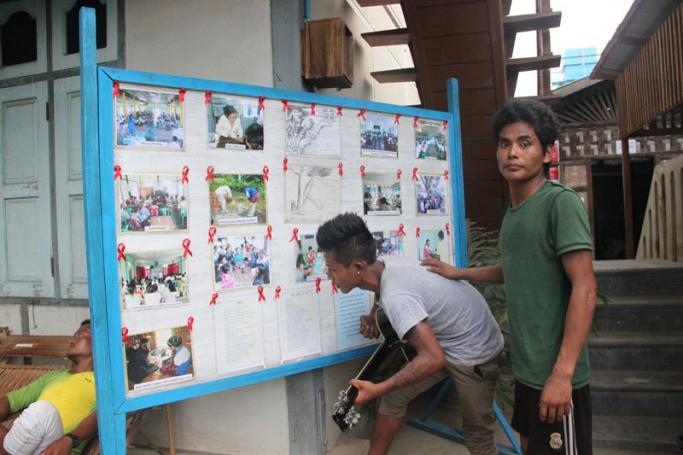The Australian Government’s recent decision to cancel its pledged sum of US$42 million [K42 billion] in aid to Myanmar has left many nervous about future spending on life-saving services.
A 3MDG Fund board meeting will be held in Nay Pyi Taw on Monday June 8 to discuss the implications of the 13 percent cut from its total budget, which numerically represents a reduction to US$292 million from $334 million. Australia chairs the board, which since 2014 has also included Myanmar’s Ministry of Health.
The 3MDG Fund is the largest development fund in Myanmar and receives contributions from six other bilateral donors: Denmark, the European Union, Sweden, Switzerland, the UK and the US. According to a statement released by 3MDG on 28 May, Australia will remain the second-largest contributor to the fund.
3MDG said the cuts will have no immediate impact on current programmes, which focus on child and maternal health as well as HIV/AIDS, malaria and tuberculosis. These programmes will be continued to be funded until 2016 as planned. It is what lies beyond that which has many concerned.
Since 3MDG inception in Myanmar three years ago, it has increased access to health services to more than 3.5 million people, according to its 2014 annual report.
“This included vaccinating more than 80,000 children against measles, reaching nearly 27,000 people who inject drugs with HIV prevention programmes, screening more than 50,000 people for tuberculosis and treating almost 110,000 people for malaria,” the report states.
Future of harm reduction looks uncertain
"The cuts for 3MDG are very worrisome for us. HIV among people who inject drugs is already the highest among all risk groups in Myanmar; the latest data even suggest a rise in the number of drug injectors, as well as in HIV prevalence amongst them. As such, more coverage is needed to fully address it. I hope these funding cuts will not jeopardise this,” said Willy De Maere, Technical Director at the Asia Harm Reduction Network (AHRN).
According to a June 2014 report by the Transnational Institute titled, Bouncing back: Relapse in the Golden Triangle, HIV infection rates among drug users in Myanmar are among the highest in the world.
Harm reduction activities aim to reduce the associated risks of injecting drug use, which include tuberculosis, HIV and viral hepatitis. The 3MDG Fund contributed almost half of Myanmar’s national target for prevention activities. In 2014, the fund’s implementing partners distributed 6.9 million sterile needles and syringes to people who inject drugs – many of whom live in remote or border areas that are often subject to armed disputes between ethnic minority groups and Myanmar’s government.
“What we need is more funding, not less. It’s very disappointing,” said Dr Maung Maung Lwin, project consultant of Myanmar Anti-Narcotics Association (MANA).
“My hope is that in terms of absorbing the cuts, life-saving service deliveries will take top priority. We know that 39 percent of new HIV infections are due to unsterile needles and that the most vulnerable communities live in Myanmar’s border areas; many of which are also suffering ethnic armed conflict. I hope the board takes the time it needs to weigh up its decisions,” said UNAIDS Country Director Eamonn Murphy.
“Most of the funding from donors and Myanmar’s domestic resources go towards treatment rather than prevention. As 39 percent of new HIV infections in Myanmar are injecting drug users, we can’t afford to lose this critical support from the 3MDG Fund,” Mr Murphy added.
A statement released by the 3MDG Fund on 28 May maintained an upbeat tone: "Australia has been a strong and generous supporter of the 3MDG Fund… The country is committed to the goals and continued success of the 3MDG Fund and is an engaged partner in supporting the Ministry of Health improve the health of the people of Myanmar.”
You are viewing the old site.
Please update your bookmark to https://eng.mizzima.com.
Mizzima Weekly Magazine Issue...
14 December 2023
Spring Revolution Daily News f...
13 December 2023
New UK Burma sanctions welcome...
13 December 2023
Spring Revolution Daily News f...
12 December 2023
Spring Revolution Daily News f...
11 December 2023
Spring Revolution Daily News f...
08 December 2023
Spring Revolution Daily News f...
07 December 2023
Diaspora journalists increasin...
07 December 2023












